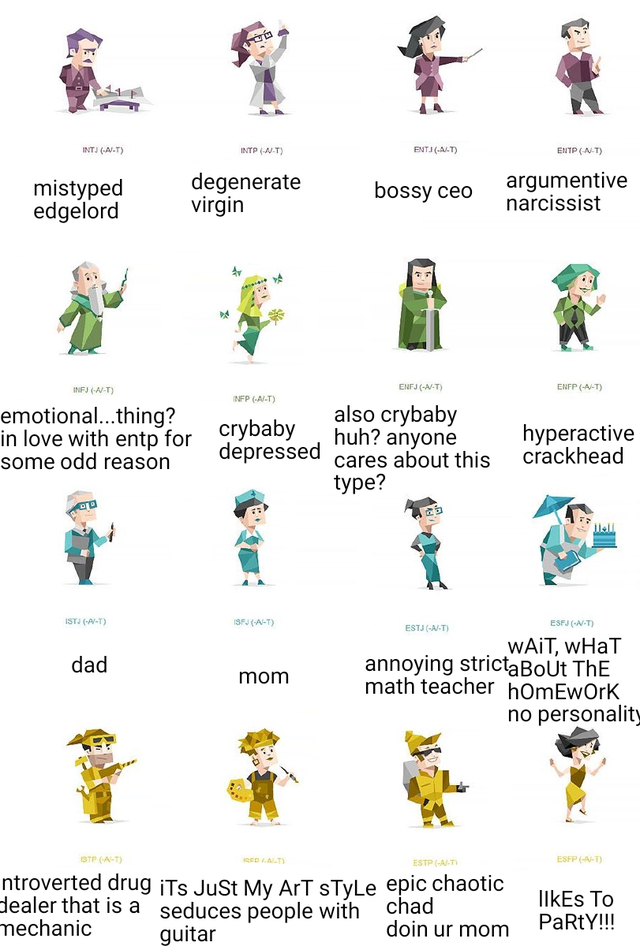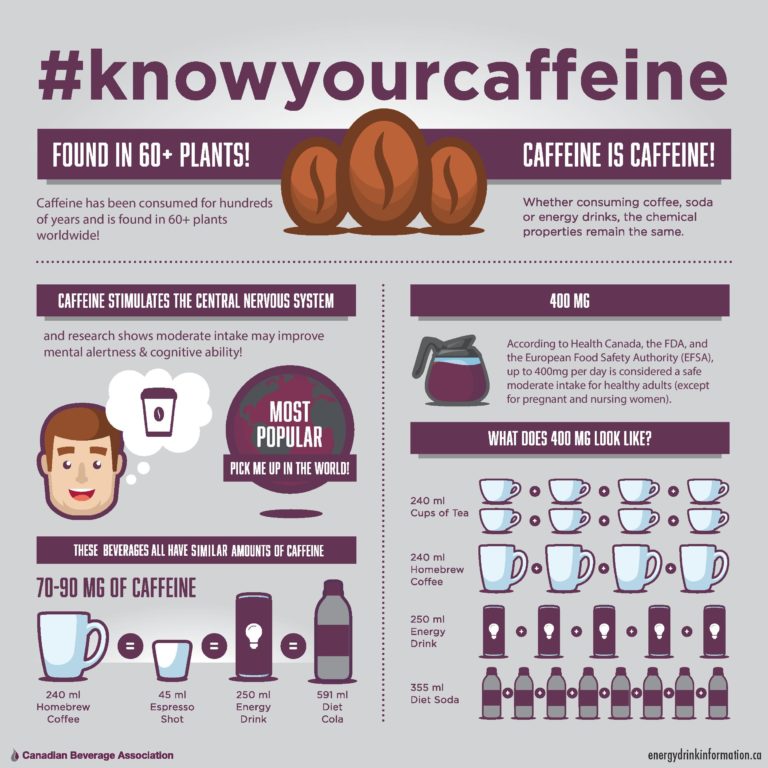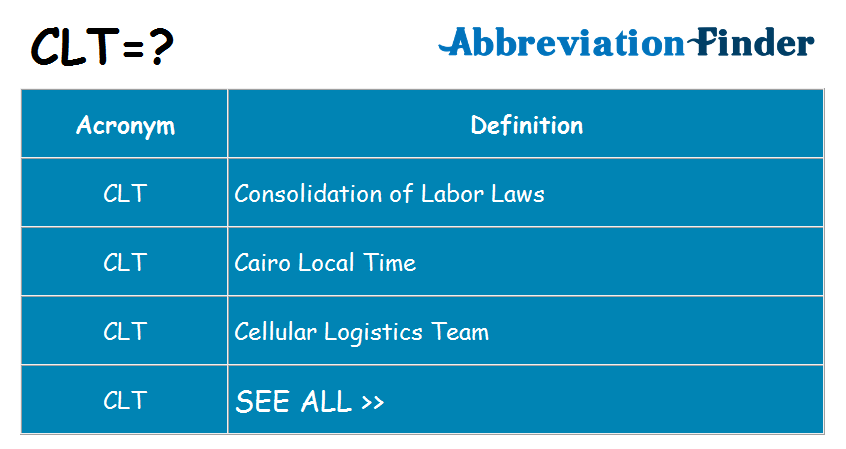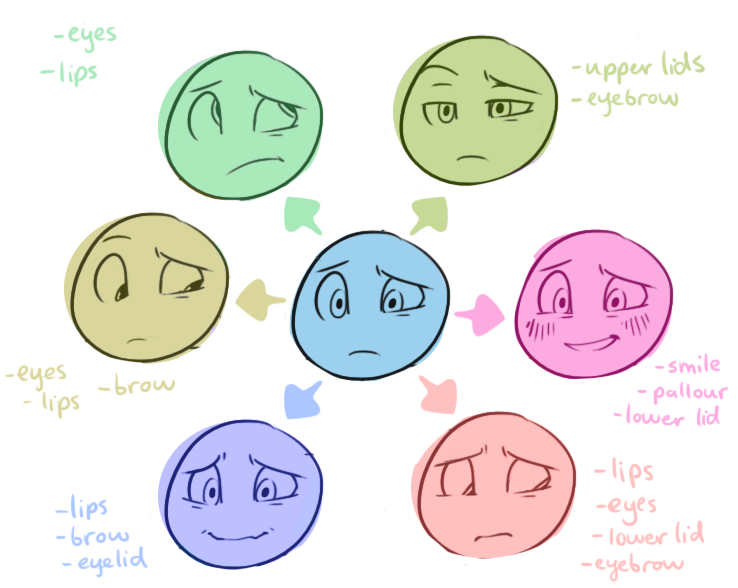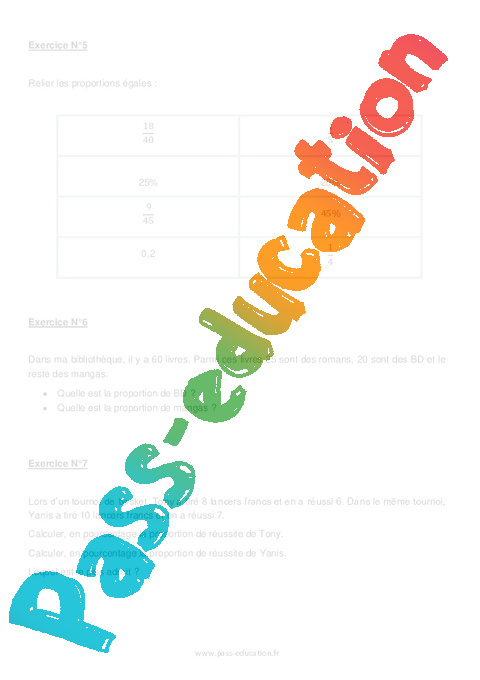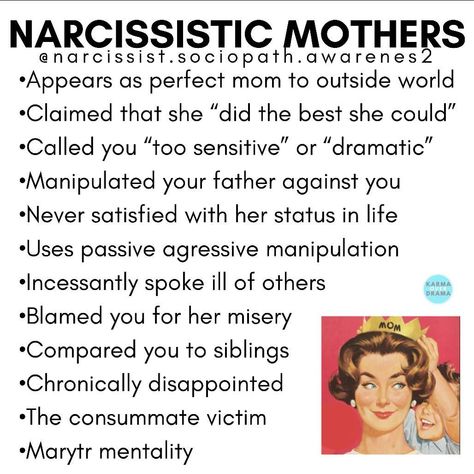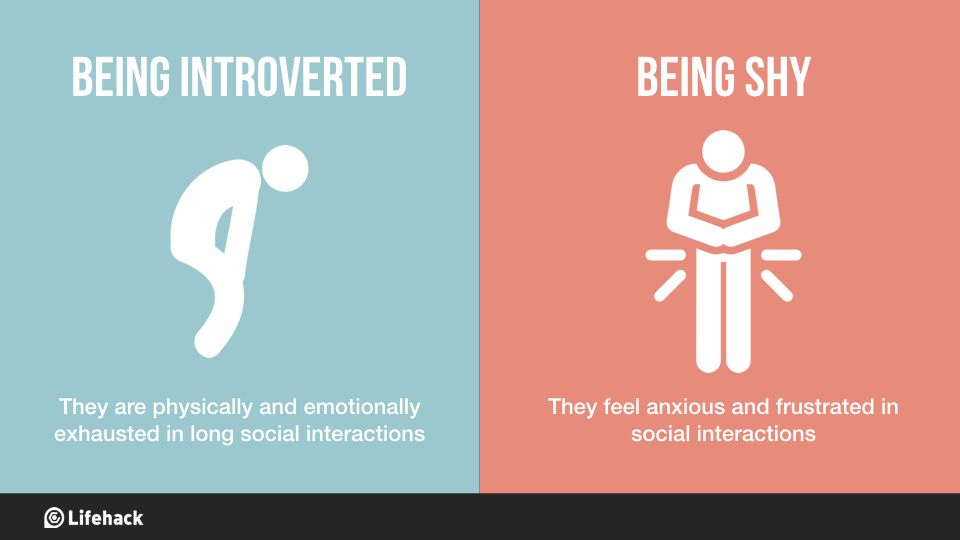Type t personalities
Why some of your Friends are “CRAZY” i.e. Type T Personality
Here in Tahoe, we have a lot of what we call “Type T” personalities. Contrary to what you might think, The “T” does not stand for “Tahoe” – or the bro-brah personality that your dirtbag neighbor exhibits when he poaches your hot tub, although that one might be in the early stages of being categorized. According to a scholarly article published in the Journal of Personal Assessment in 1990 by Moorehouse et al., Type T personality can be defined as “a personality dimension referring to individual differences in stimulation seeking, excitement seeking, thrill seeking, arousal seeking, and risk taking.” Roughly put – the T stands for “thrill seeking.”
Let’s take a look into what drives these kinds of people (i.e. most of my friends) to live their lives the way they do. What is it that sends these people back to the drop zone over and over, or up McConkey’s one more time even though the line they ate it on last run is now tracked out and peppered with nasty sharks lurking a few inches deep?
A large part of the answer lies somewhere in a lump of tissue lying at the level of the 12th thoracic vertebrae on the top of our each of our kidneys – the adrenal glands. The right adrenal gland has the shape of a triangle, and the left the shape of a crescent moon, each about the size of a ping-pong ball. The word “adrenal” has nothing to do with the function of this gland, it comes from the Latin “Ad” meaning “near” and “renal” meaning kidney – referring to the glands’ close proximity to our kidneys.
The Adrenal glands are part of the endocrine system, along with our pituitary and pineal glands, the thyroid, the pancreas, and the male and female sexual glands – the testes and ovaries. Each of these glands are made of cells whose job it is to produce and release specific hormones that regulate different body functions, such as growth, blood pressure, or energy-regulating glucose levels in blood.
The inner part of the adrenal glands is called the medulla, which is surrounded by the cortex. Corticosteroids are produced in the adrenal cortex, including small amounts of testosterone, which promotes muscle, bone, and hair growth.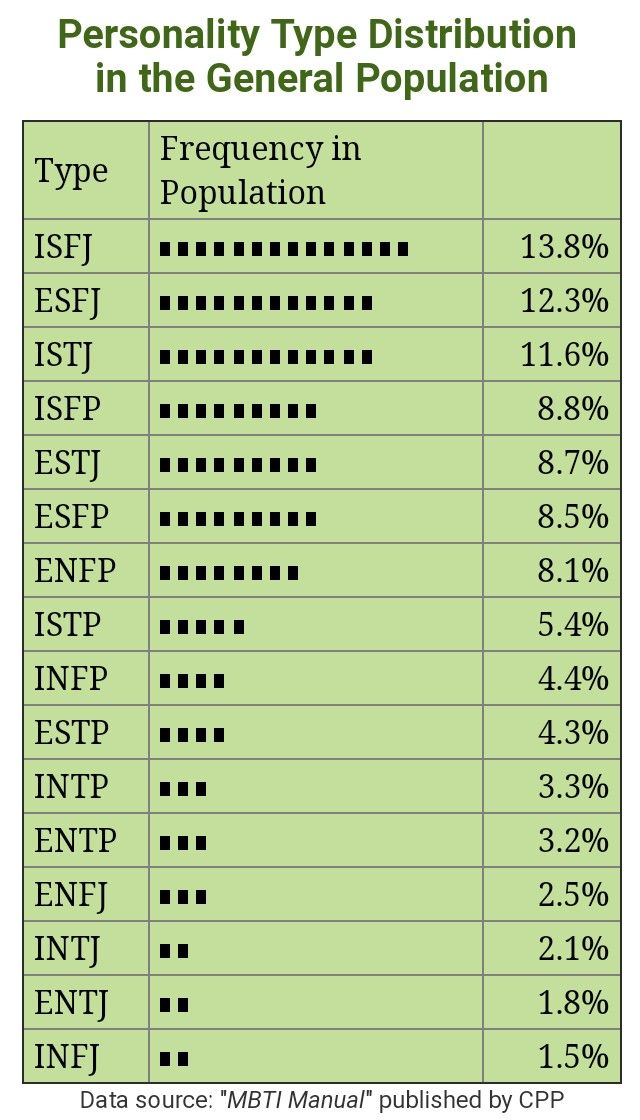 The medulla produces epinephrine and its counterpart norepinephrine, which are two of the main hormones involved in the “fight-or-flight” response. The job of the adrenal glands is to release hormones into our bloodstreams in a direct response to stresses and threats, to help us best deal with the situation at hand.
The medulla produces epinephrine and its counterpart norepinephrine, which are two of the main hormones involved in the “fight-or-flight” response. The job of the adrenal glands is to release hormones into our bloodstreams in a direct response to stresses and threats, to help us best deal with the situation at hand.
Epinephrine is the actual chemical name for what is colloquially known as “adrenaline.” The word literally means the same thing as “adrenal” in terms of translating to mean “near the kidneys,” but is derived from Greek instead of Latin. The compound was first synthesized in the lab in 1895 by Polish scientist Napoleon Cybulski, but it was simultaneously discovered in Japan by Keizo Uenaka five years later. The effects of epinephrine on the body are diverse, including but not limited to an increase in heart rate to pump more blood, dilation of air passages in the lungs to facilitate bringing in more oxygen to the bloodstream, and constriction of blood vessels to move more blood around the body more efficiently.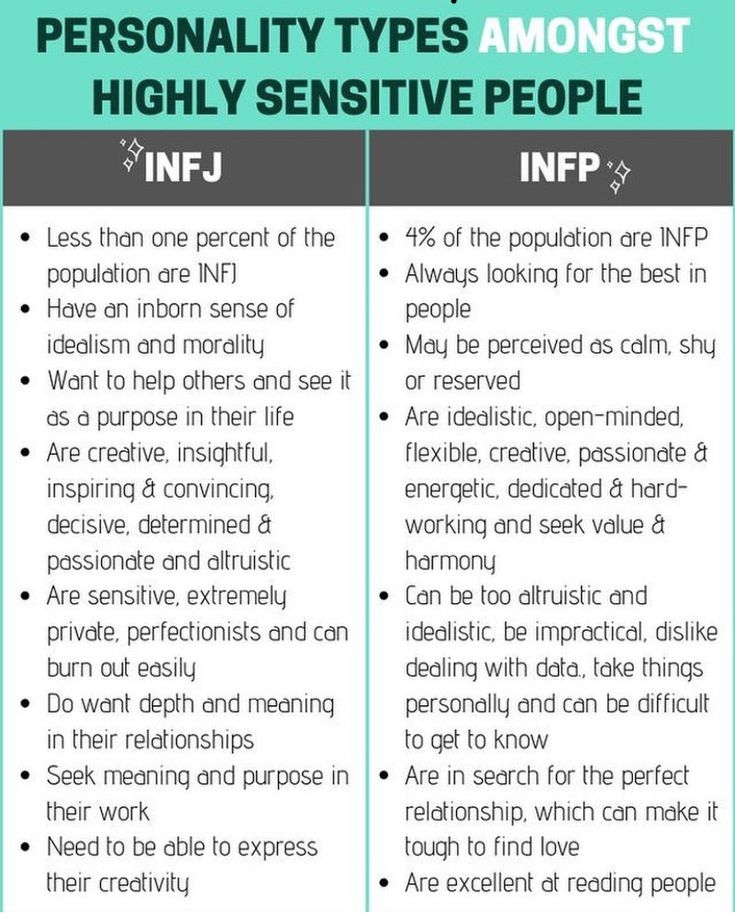 All of these things are physical manifestations of the “fight or flight” response.
All of these things are physical manifestations of the “fight or flight” response.
What does any of this have to do with Type-T personality? Type Ts are much more likely to repeatedly engage in thrill-seeking behavior because it is exactly that behaviour which tricks the body into producing epinephrine over and over again, as the body’s natural response to the “threat” to it’s continued well-being. Epinephrine induces a feeling of euphoria or a “high” in people when they seek out high-risk, high consequence activities such as big mountain skiing, hucking huge airs, sky diving, and BASE jumping. So when Type Ts head out to go skiing, they don’t just go cruise groomers at Northstar, they line up at KT two hours before the lifts open so they can race each other to the Fingers and throw a backflip off the Middle Knuckle. In this way, they are adrenaline junkies in the same way that addicts repeatedly shoot heroin into their arms. When they go long periods without getting their adrenaline “fix” they become agitated and morose.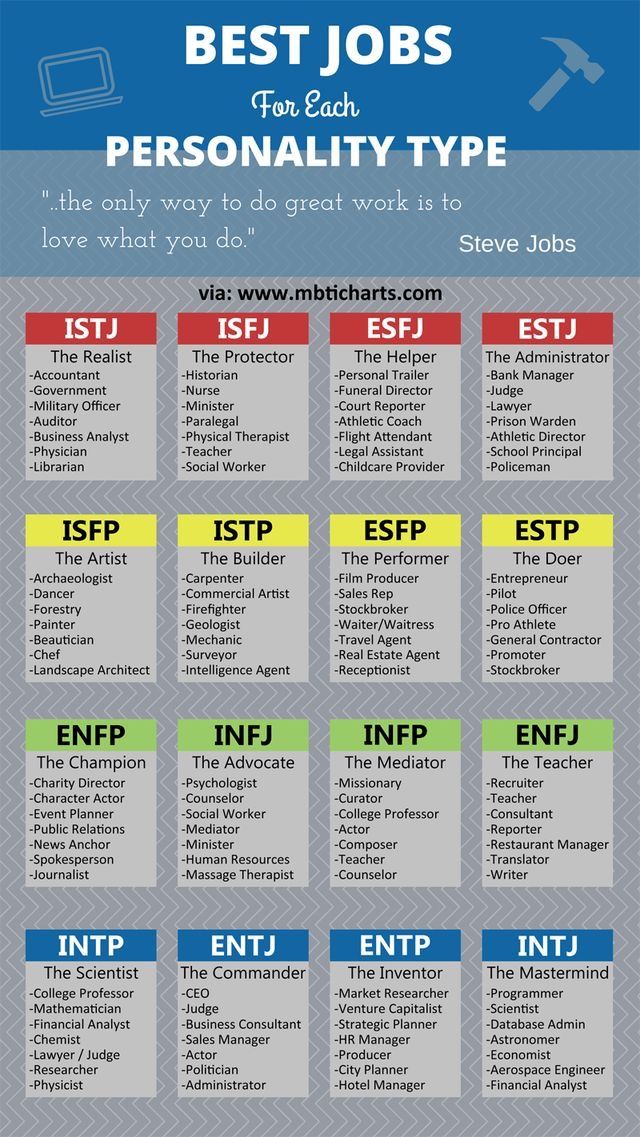 Just ask any Tahoe local during one of our month-long “Juneuary” dry spells how bad he or she is fiending for deep powder.
Just ask any Tahoe local during one of our month-long “Juneuary” dry spells how bad he or she is fiending for deep powder.
Epinephrine and the physical response to it seen in our bodies can be highly addictive. In fact, the body actually produces hormones called “endorphins” when stressed which counteract the effects of epinephrine. Endorphins have a similar effect to morphine, in that they dull or lessen pain, and produce a dreamy, mellow feeling of wellness. It is said that endorphins are generated as part of the response to intense physical pain, to aid the body in blocking the pain signals and to help the injured party collect themselves so as to deal with the source of the injury.
Perhaps the most popularly known movie about Type T personalities is the epic 1991 film Point Break, which features the Oscar-worthy acting of pseudo-Hawaiian Keanu Reeves (sorry Scott Gaffney, its not Adrenaline Descents). Just check out the powerful ending:
Special Agent Utah surely understands Bodie’s need to get in one last adrenaline fix, so he uncuffs him, and lets him paddle into the certain-death closeout set-of-a-lifetime instead of taking him to boring old prison.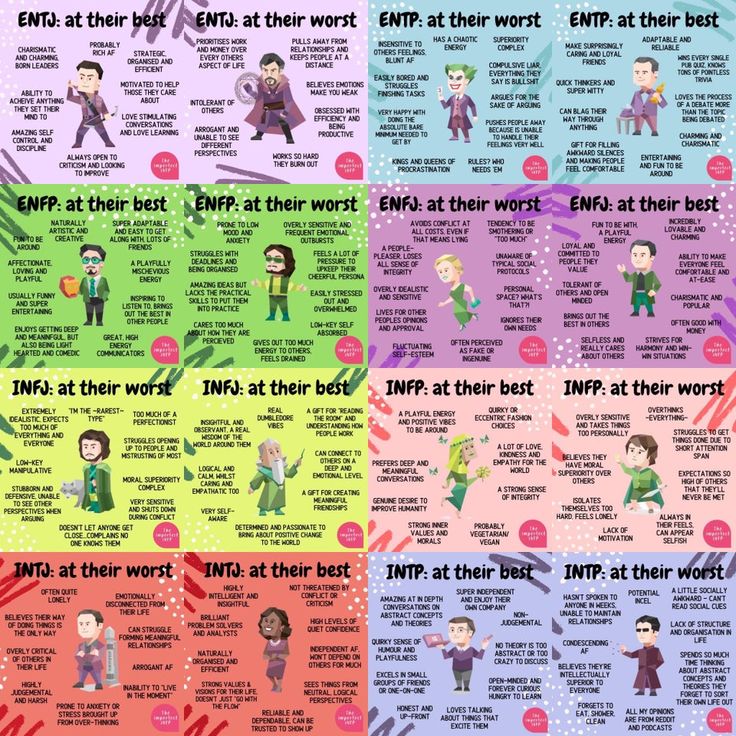
And, if you’re doubting your body’s ability to produce enough epinephrine after all of those skydives or runs down For Pete’s Sake, there is one event that will reward you with one shot glass filled with pure human adrenaline – the Captain Chaos Class of the New York to Apocalypse leg of the Rental Car Rally. Check it out here:
http://www.rentalcarrally.com/rallies/5
But – be careful (that is if the organizers are really serious) as too much epinephrine can lead to anxiety, heart flutter and palpitations, headaches, tremors and other central nervous system malfunctions, high blood pressure, and even acute pulmonary edema. Maybe better to just stick to the Fingers race.
Adrenaline, epinephrine, fingers, junkie, personality, point break, Squaw, thrill seeking, type-t, Home Page, Locations, Squaw, Uncategorized
definition of type+t+personality by Medical dictionary
Type+t+personality | definition of type+t+personality by Medical dictionaryType+t+personality | definition of type+t+personality by Medical dictionary
Word not found in the Dictionary and Encyclopedia.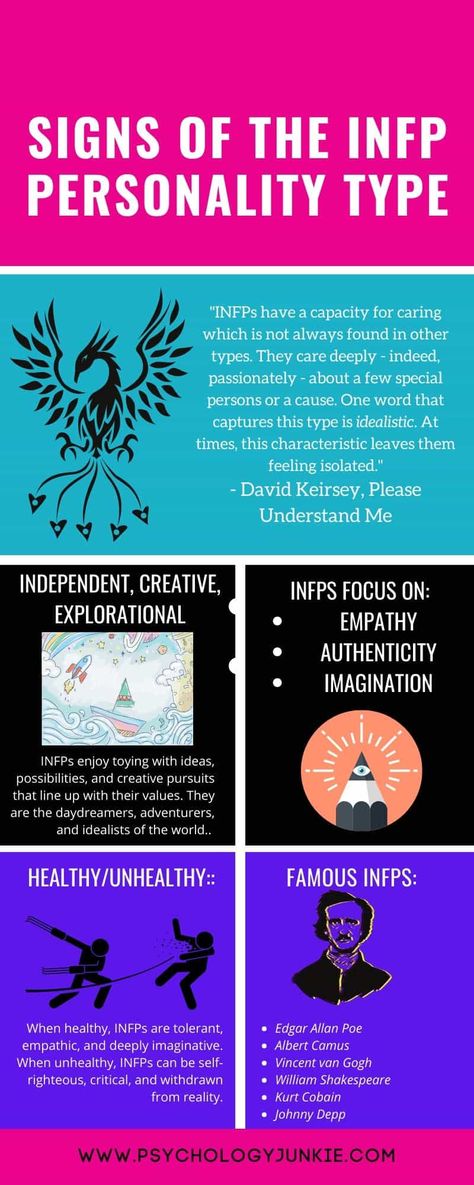
Please try the words separately:
type t personality
Some articles that match your query:
- Type A personality
- Fives (Enneagram of Personality)
- Sixes (Enneagram of Personality)
- Personality type
- Fours (Enneagram of Personality)
- Threes (Enneagram of Personality)
- Type D personality
- Nines (Enneagram of Personality)
- Twos (Enneagram of Personality)
- Eights (Enneagram of Personality)
- Ones (Enneagram of Personality)
- Gifts Differing
- Enneagram of Personality
- Sevens (Enneagram of Personality)
- Japanese blood type theory of personality
Full browser ?
- ▲
- Type variable
- type VI
- type VI
- type VI
- type VI
- type VI mucopolysaccharidosis
- type VII
- type VII
- type VII
- type VII
- type VII mucopolysaccharidosis
- Type VII submarine
- type VIII
- type VIII
- type VIII
- type VIII
- Type wheel
- Type with You Later
- Type writer
- Type writer
- Type writer
- Type X
- Type X submarine
- Type XIV submarine
- Type XVII submarine
- Type XVIII collagen
- Type XXI submarine
- Type XXIII submarine
- Type XXVII collagen
- Type Zero
- type+t+personality
- Type, Literary
- type, model, and/or series
- Type, Size and Location
- type, type specimen
- type-1 dehydrogenase
- Type-1 diabetes autoantigen ICA12
- Type-1 Diabetes Mellitus
- type-1 error
- type-1 error
- Type-1 Gumbel distribution
- type-1 specialist-registrar training programme
- Type-2 Copper-Depleted
- type-2 error
- type-2 error
- Type-2 Gumbel distribution
- type-2 specialist-registrar training programme
- type-3 error
- type-3 neuronal ceroid lipofuscinosis
- Type-72Z Safir-74
- Type-A behavior
- type-a leader
- type-ahead
- type-ahead
- type-ahead index
- type-ahead search
- type-bar printer
- Type-Based Alias Analysis
- Type-C stars
- Type-C stars
- type-cast
- ▼
Site: Follow:
Share:
Open / Close
Personality types | 16Personalities
Analysts
Strategist
INTJ-A / INTJ-T
Imaginative, strategic thinkers with a plan for all occasions.
Scientist
INTP-A / INTP-T
Creative inventors, with a strong belief in the power of knowledge.
Commander
ENTJ-A / ENTJ-T
Brave, resourceful and strong-willed leaders who always find a way - or make a way.
Debater
ENTP-A / ENTP-T
Smart and curious thinkers who never turn down an intellectual challenge.
Diplomats
Activist
INFJ-A / INFJ-T
Quiet and mystical, but inspiring and relentless idealists.
Broker
INFP-A / INFP-T
Poetic, kind and altruistic personalities, always ready to stand up for a good cause.
Trainer
ENFJ-A / ENFJ-T
Charismatic and inspiring leaders who captivate their listeners.
Wrestler
ENFP-A / ENFP-T
Enthusiasts, creative and sociable free minds who always find a reason to smile.
Guardians
Administrator
ISTJ-A / ISTJ-T
Practical and factual people whose reliability is unshakable.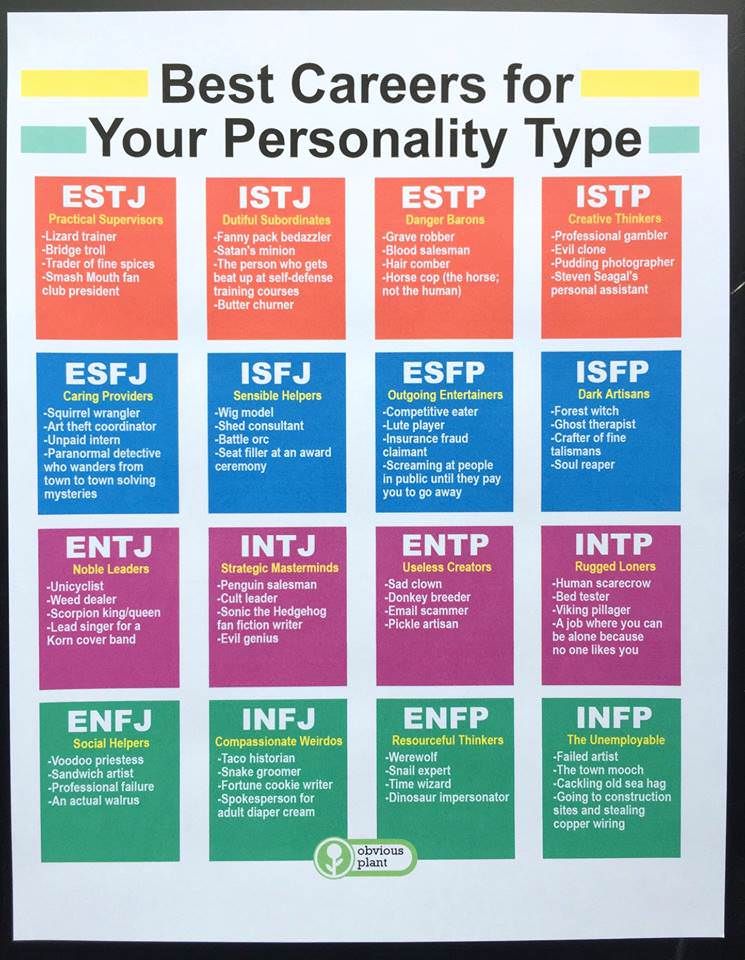
Protector
ISFJ-A / ISFJ-T
Very responsible and kind protectors, always ready to protect their loved ones.
Manager
ESTJ-A / ESTJ-T
Excellent administrators, unsurpassed specialists in process and people management.
Consul
ESFJ-A / ESFJ-T
Extremely caring, sociable and popular people, always ready to help.
Seekers
Virtuoso
ISTP-A / ISTP-T
Brave and practical experimenters, masters of all kinds of techniques and tools.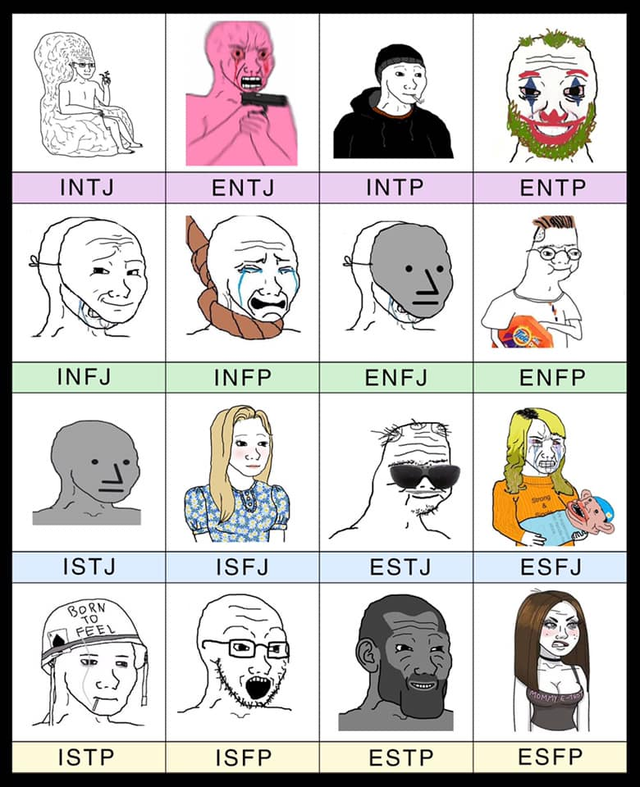
Artist
ISFP-A / ISFP-T
Flexible and charming artists, always ready to explore and experience something new.
Dealer
ESTP-A / ESTP-T
Smart, energetic and very receptive people who truly enjoy risk.
Entertainer
ESFP-A / ESFP-T
Spontaneous, energetic and tireless merry fellows - where they are, it's never boring.
Personality types: main differences and their characteristics
Contents of the article
All people are different: someone likes to lead an active lifestyle and communicate a lot, it is easier for someone not to stand out among others, someone is prone to sensitivity and excessive self-criticism.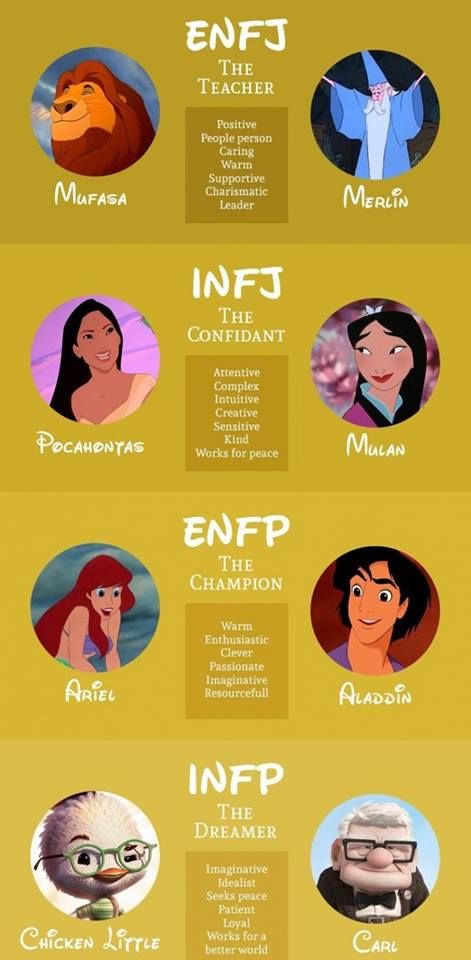 Since ancient times, scientists and philosophers have been interested in the topic of personality classification, many theories have been developed, some of which have become part of modern psychology. In this article, we will briefly analyze the psychological types that the Soviet scientist A.E. Lichko developed while observing adolescents. It is in adolescence that individual character traits and psychological characteristics are quite strongly manifested, which are smoothed out during growing up, but can manifest themselves at a moment of crisis. Even more types of personality classifications can be found in the free online course "Typology of Personality" on the platform "Russia - a country of opportunities".
Since ancient times, scientists and philosophers have been interested in the topic of personality classification, many theories have been developed, some of which have become part of modern psychology. In this article, we will briefly analyze the psychological types that the Soviet scientist A.E. Lichko developed while observing adolescents. It is in adolescence that individual character traits and psychological characteristics are quite strongly manifested, which are smoothed out during growing up, but can manifest themselves at a moment of crisis. Even more types of personality classifications can be found in the free online course "Typology of Personality" on the platform "Russia - a country of opportunities".
Asthenoneurotic type
People with a weak nervous system who are characterized by low stamina, irritability and overwork. They get tired more from psychological stress than from physical exertion. When working for a long time, they need frequent breaks, in general they like to work at their own pace.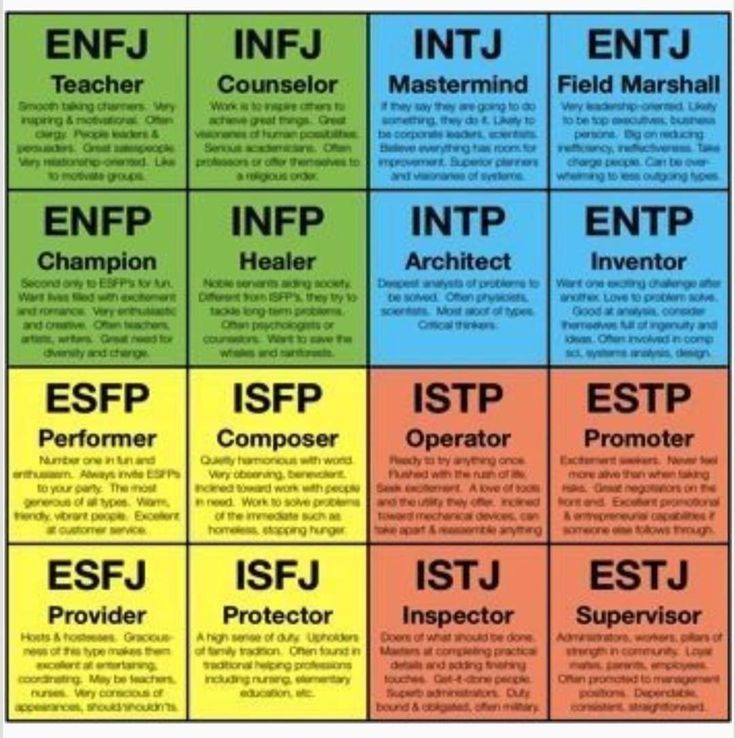 Such people are hard to switch from one activity to another, it is better not to distract them from the process once again. Any unforeseen situations cause them irritability and anxiety. But these people are very careful and disciplined, they can spend hours doing monotonous work that does not require speed.
Such people are hard to switch from one activity to another, it is better not to distract them from the process once again. Any unforeseen situations cause them irritability and anxiety. But these people are very careful and disciplined, they can spend hours doing monotonous work that does not require speed.
Unstable type
Complex personality type, which is characterized by irresponsibility, idleness and addiction, for example, from alcohol, drugs, games. Such people strive for pleasure, they want to constantly relax and have fun. They often have problems with work, they do not want to study and grow professionally. This type of personality can be called a real hedonist who sees entertainment and enjoyment as the main goal of his life. The positive features include openness and sociability.
Conformal type
People who strive to live like everyone else and do not want to stand out from the crowd once again. The opinion of others is very important to them, they try to earn the praise and approval of others. Basically, the way of life of such people directly depends on the society in which they live. If there are religious people around them, then the conformist will be a believer to the point of fanaticism. It is also difficult for them to change something in their lives, it is difficult to pull them out of their comfort zone. Positive features include low conflict, friendliness, devotion and diligence.
Basically, the way of life of such people directly depends on the society in which they live. If there are religious people around them, then the conformist will be a believer to the point of fanaticism. It is also difficult for them to change something in their lives, it is difficult to pull them out of their comfort zone. Positive features include low conflict, friendliness, devotion and diligence.
Labile type
Empathic people who can feel the mood and feelings of others well. They often make outstanding psychologists and social workers. They are open and always ready to help and support with a kind word. But this type is very sensitive and touchy, does not tolerate criticism in his address, cannot stand loneliness and changes in life.
Cycloid type
People who are prone to drastic mood swings experience strong emotions - either they are overly happy, or they feel sad on the verge of depression. They cope with internal experiences for a long time, they are distinguished by excitability and irritability, sometimes aggressiveness.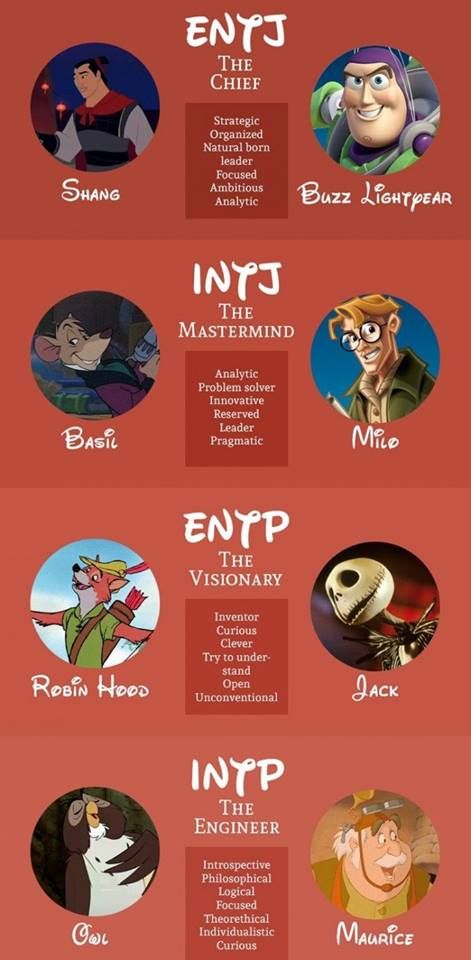 The positive traits include sociability and friendliness.
The positive traits include sociability and friendliness.
Sensitive
People with excessive impressionability, vulnerability and openness. They can get excited about simple things that most people don't notice. They also keep pleasant and unpleasant memories for many years, which flash in memory as if in reality. This type of personality is difficult to tolerate public criticism, is very afraid of being ridiculed. Positive traits include increased morality, compassion and sociability.
Psychasthenic type
People who are prone to introspection and reflection like to delve into themselves and criticize for shortcomings. They have an excellent memory, so they remember their mistakes well and often engage in self-flagellation. Hence, they have a lack of confidence in their abilities, they take too long to make decisions, doubt and are afraid to stumble again. The positive features include loyalty and reliability, they will never betray loved ones and will always stand up for their own.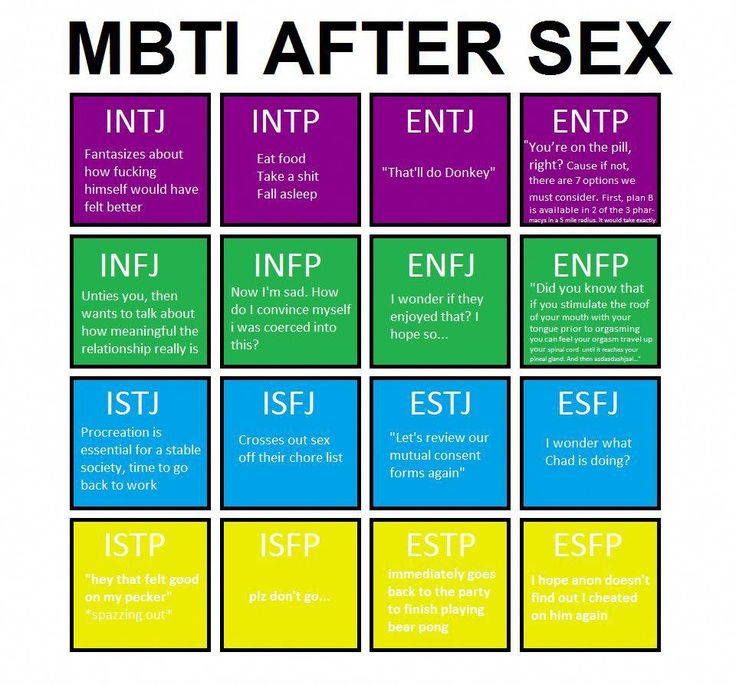
Schizoid type
Closed and unsociable people who do not know how or do not want to build close relationships with others. But they do a great job of maintaining business relationships. They have a rich inner world, into which they prefer not to let anyone in. Many people have high intelligence and out-of-the-box thinking. But they practically do not know how to recognize other people's emotions.
Epileptoid type
The most complex type of people, prone to breakdowns, aggression and pedantry. They seek to subjugate everyone, to win an authoritarian position. Such people do not know how to build friendly relations at all, they can vent evil on others, they are very scrupulous about the work of employees. But personalities of this type can be strong leaders.
Hysteroid type
Personality type that requires increased attention to oneself. They need constant admiration and reverence. Indifference to their person is the worst scenario for them.